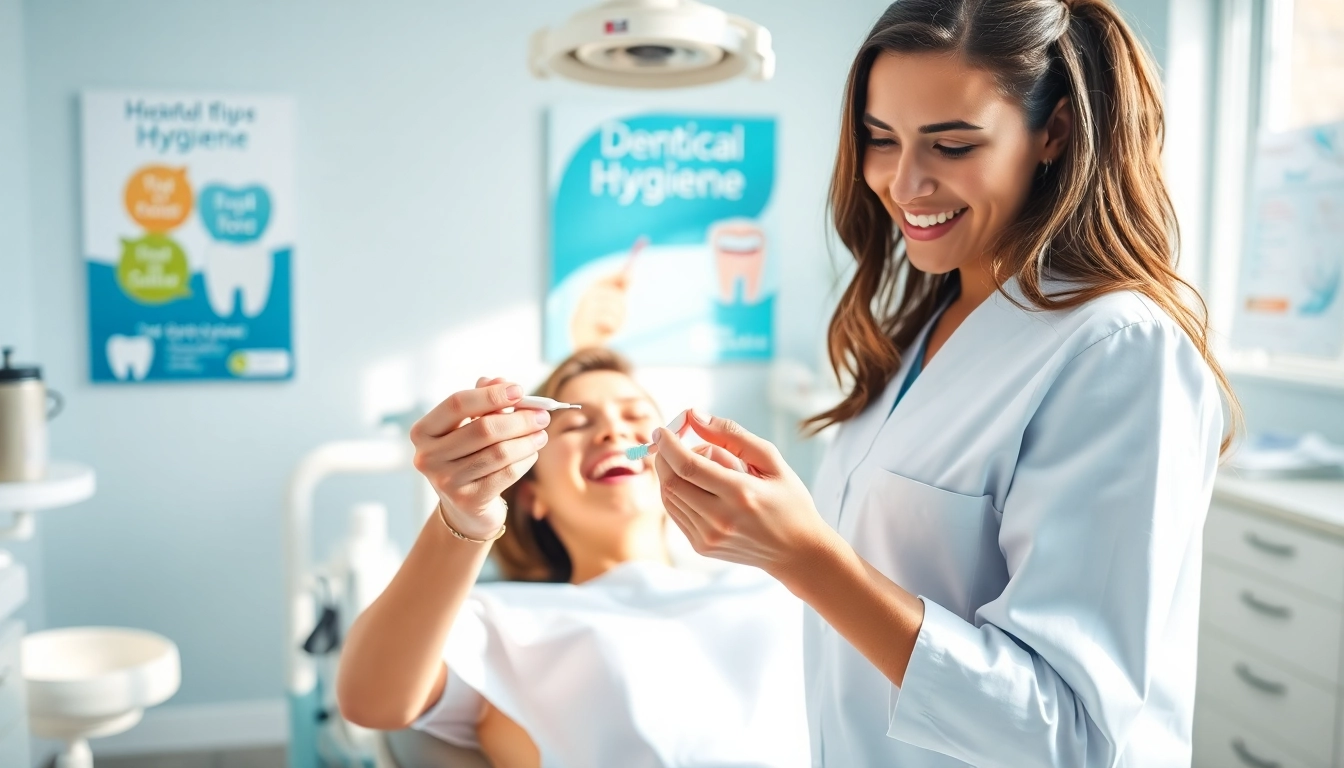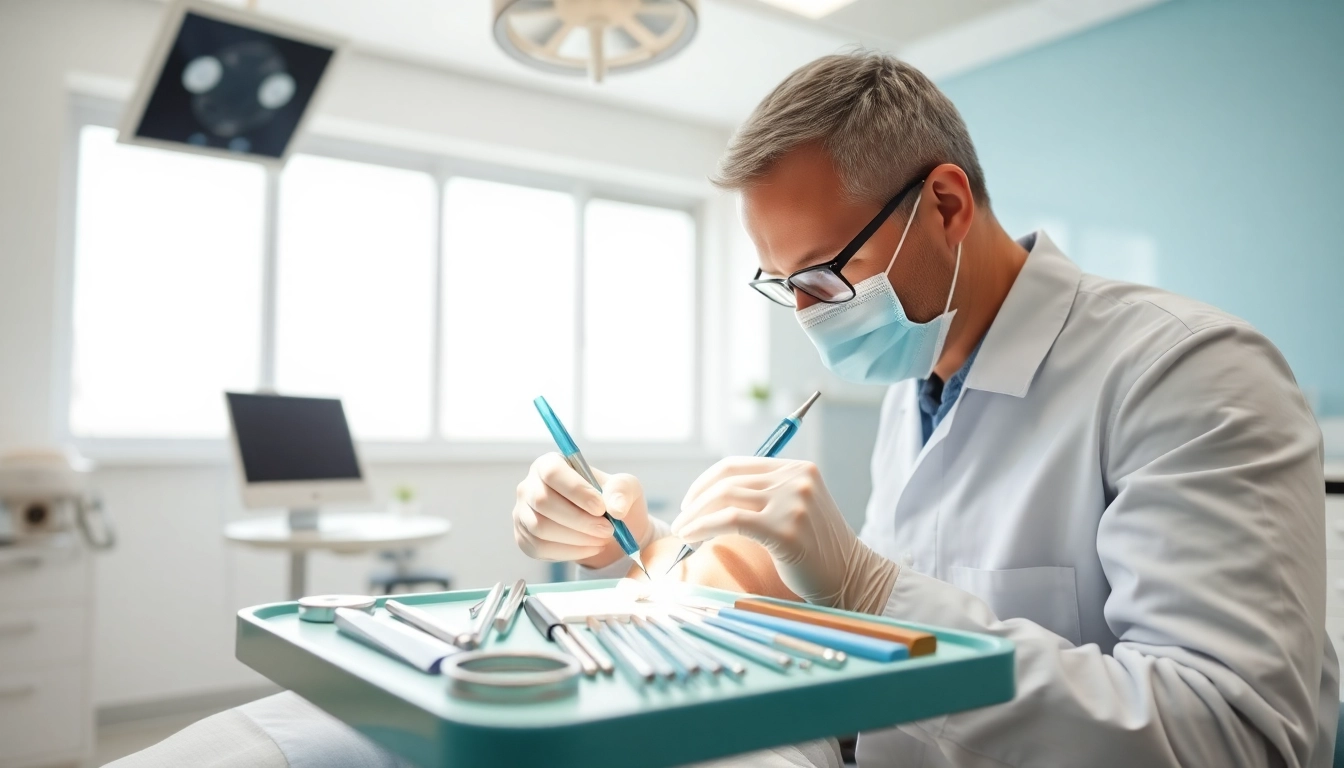Understanding the Importance of Hygiene
In our modern society, the significance of hygiene cannot be overstated. Hygiene refers to conditions or practices conducive to maintaining health and preventing disease, especially through cleanliness. The practices that embody hygiene are essential for our daily lives, influencing everything from our physical health to our social interactions. Proper hygiene encompasses a broad range of activities, including personal care, food sanitization, and environmental cleanliness. These efforts are integral to our overall well-being and can have profound implications for public health. To enhance your understanding of this topic, visit hygiene.
What is Hygiene?
Hygiene is derived from the Greek word “hygieinos,” meaning health. It encompasses various practices and conditions that promote good health and prevent the outbreak of disease. This broad term includes personal hygiene—like bathing and oral care—as well as public hygiene, such as sanitation and environmental cleanliness. The primary focus of hygiene is to prevent disease and maintain health through cleanliness, which can drastically reduce the incidence of infections and other health-related issues.
Historical Perspective on Hygiene Practices
The concept of hygiene has evolved significantly throughout history. Ancient civilizations recognized the importance of cleanliness and took various measures to maintain health. The Egyptians, for instance, practiced regular bathing and emphasized the importance of cleanliness. In the Middle Ages, however, a decline in hygiene standards led to the rapid spread of diseases like the bubonic plague, illuminating the critical connection between hygiene and public health. Fast forward to the modern era, where advancements in science and a greater understanding of infectious diseases have led to widespread hygiene practices that help combat pandemics and ensure public safety.
Common Misconceptions about Hygiene
Despite the well-documented benefits of maintaining good hygiene, several misconceptions remain prevalent. One common myth is that frequent bathing can strip the skin of its natural oils, leading to dryness. While excessive washing can indeed cause skin issues, regular bathing is essential for removing dirt and bacteria. Additionally, some believe that hygiene is only about personal habits when, in fact, communal hygiene practices, such as sanitation and waste management, are equally vital.
Personal Hygiene: A Critical Component
Personal hygiene is one of the most crucial aspects of hygiene overall. It involves practices that maintain the health of the individual while preventing the spread of germs and diseases. Adhering to personal hygiene protocols not only protects the individual but also serves to create a healthier community.
Daily Routines for Personal Hygiene
Establishing a consistent daily routine can enhance personal hygiene. Key routines include:
- Handwashing: Regular handwashing with soap and water prevents the spread of pathogens. This should be done before meals, after using the restroom, and after contact with surfaces in public spaces.
- Oral Care: Brushing teeth at least twice a day and flossing daily can help prevent dental issues and improve overall health.
- Bathing: Regularly bathing or showering helps remove dirt and sweat, reducing the risk of skin infections.
- Nail Care: Keeping fingernails trimmed and clean prevents the accumulation of dirt and reduces the risk of infections.
The Role of Personal Hygiene in Health
Personal hygiene plays a paramount role in both physical and mental well-being. Poor hygiene can lead to various health issues, including skin infections, dental problems, and even respiratory diseases. Moreover, maintaining good hygiene can significantly boost individual confidence and contribute to positive social interactions. For example, individuals who prioritize hygiene are often perceived more favorably in social and professional settings.
Tips for Improving Personal Hygiene
Improving personal hygiene habits can be straightforward. Here are some actionable tips:
- Carry hand sanitizer for instances when soap and water are unavailable.
- Set reminders to maintain a consistent oral hygiene routine, including flossing and dental check-ups.
- Invest in personal care products that suit your skin type and needs, as harsh products can lead to adverse effects.
- Educate yourself and others about the importance of hygiene practices, fostering a culture of cleanliness.
Dental Hygiene: Best Practices
Dental hygiene is a vital subset of personal hygiene that focuses specifically on maintaining oral health. Neglecting dental hygiene can lead to a myriad of problems, including cavities, gum disease, and even systemic health issues.
Daily Dental Hygiene Routine
A comprehensive dental hygiene routine should include:
- Brushing teeth twice a day with fluoride toothpaste to remove plaque and prevent cavities.
- Flossing daily to eliminate food particles and plaque between teeth.
- Using mouthwash to help kill bacteria and freshen breath.
Importance of Regular Dental Check-ups
Regular dental check-ups are critical for maintaining oral health. These appointments allow dental professionals to identify potential issues early, provide professional cleaning, and offer personalized recommendations for improving dental care. Adults should visit the dentist at least once every six months, while children might need more frequent visits depending on their dental development.
Common Dental Hygiene Mistakes to Avoid
Many individuals may unknowingly make mistakes that can compromise their dental health. Common mistakes include:
- Brushing too hard, which can damage tooth enamel and gums.
- Neglecting to clean the tongue, which harbors bacteria that contribute to bad breath.
- Using the wrong type of toothbrush—soft-bristled toothbrushes are generally recommended for optimal results.
Hygiene in Public Health
Hygiene extends beyond the individual and plays a significant role in public health. Effective hygiene practices are essential for preventing the spread of infectious diseases, particularly in crowded or underserved areas.
Hygiene Practices to Prevent Disease Spread
The integration of hygiene practices into daily life can greatly reduce the transmission of illnesses. These include:
- Implementing proper food hygiene, such as washing hands before food preparation and cooking food to safe temperatures.
- Promoting vaccinations to prevent diseases that can spread through contaminated environments.
- Encouraging regular sanitation of public spaces, particularly during outbreaks of contagious diseases.
Community Initiatives for Hygiene Awareness
Community initiatives play a pivotal role in promoting hygiene awareness. Schools, healthcare providers, and local governments can collaborate to create programs that educate the public about the importance of hygiene practices. Examples include:
- Workshops on handwashing techniques and the significance of regular check-ups.
- Public health campaigns that focus on sanitation practices during flu season.
- Community clean-up events that encourage environmental hygiene.
The Impact of Hygiene on Public Health
Research has consistently demonstrated the correlation between hygiene practices and public health outcomes. Regions with higher standards of hygiene report lower rates of communicable diseases. This is particularly evident in the context of infectious diseases, where good hygiene can serve as the first line of defense in public health.
Resources for Maintaining Hygiene
In today’s digital age, access to resources for maintaining hygiene has never been easier. From product recommendations to educational programs, a wealth of information is available online.
Recommended Products for Personal and Dental Hygiene
Investing in high-quality hygiene products can significantly improve personal hygiene practices. Recommended products include:
- Natural, biodegradable soaps and body washes that minimize skin irritation.
- Fluoride toothpaste and antimicrobial mouthwash for comprehensive dental care.
- Moisturizers and sunscreen for skin protection against environmental elements.
Online Resources and Communities
Several online platforms and communities offer tutorials, expert advice, and discussions related to hygiene practices. Utilizing resources such as health blogs, YouTube channels, and interactive forums can enhance knowledge and encourage the adoption of better hygiene habits.
Educational Programs on Hygiene
Educational institutions, healthcare organizations, and public health departments often host workshops and seminars focusing on hygiene. Engaging in these programs can provide valuable insights from experts and foster a culture of hygiene awareness within the community.



